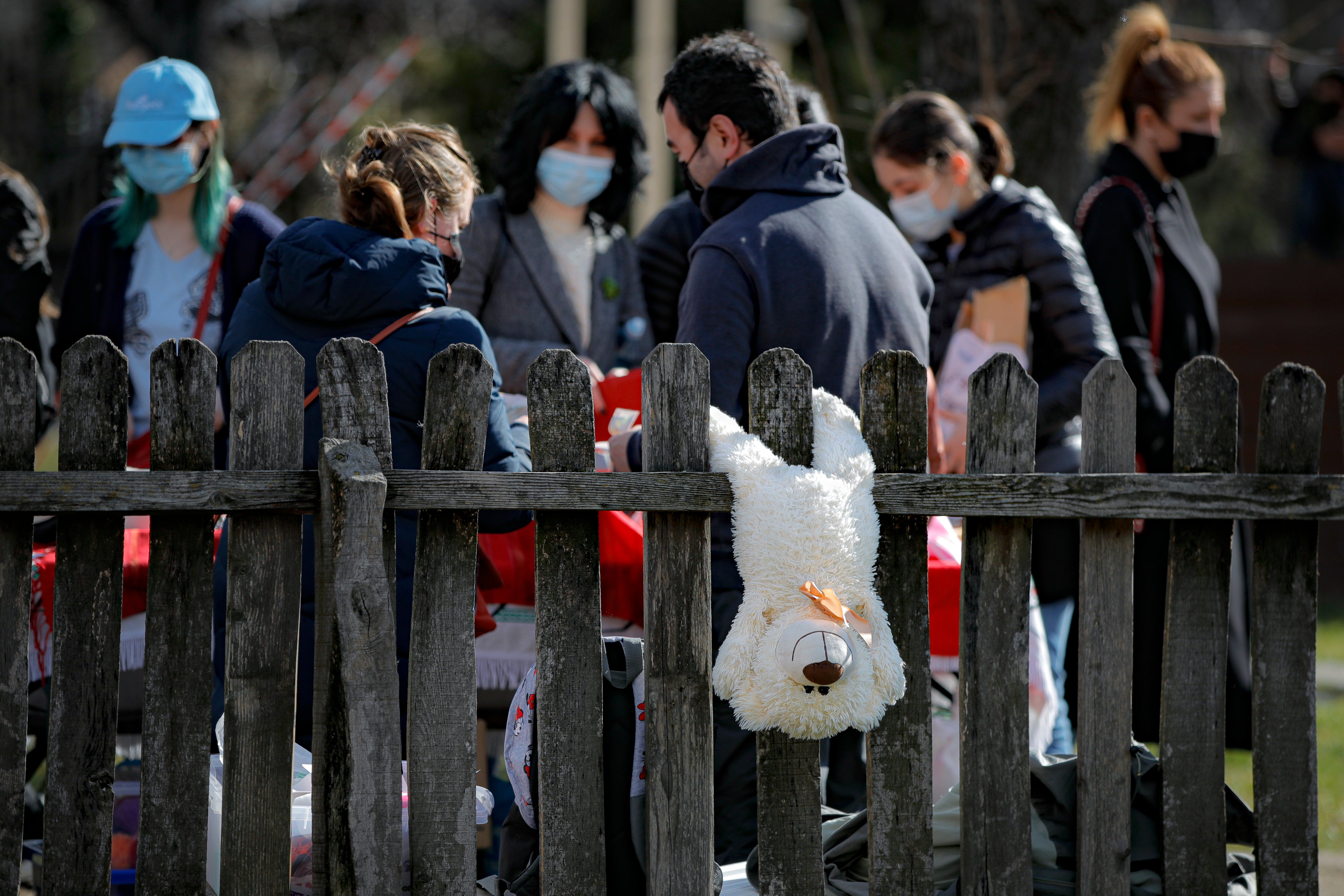WHO: 'Premature,' 'unrealistic' COVID-19 will end soon
The World Health Organization's emergencies chief says it's “premature” and “unrealistic” to think that the pandemic might be stopped by the end of the year

Your support helps us to tell the story
From reproductive rights to climate change to Big Tech, The Independent is on the ground when the story is developing. Whether it's investigating the financials of Elon Musk's pro-Trump PAC or producing our latest documentary, 'The A Word', which shines a light on the American women fighting for reproductive rights, we know how important it is to parse out the facts from the messaging.
At such a critical moment in US history, we need reporters on the ground. Your donation allows us to keep sending journalists to speak to both sides of the story.
The Independent is trusted by Americans across the entire political spectrum. And unlike many other quality news outlets, we choose not to lock Americans out of our reporting and analysis with paywalls. We believe quality journalism should be available to everyone, paid for by those who can afford it.
Your support makes all the difference.A senior World Health Organization official said Monday it was “premature” and “unrealistic” to think the pandemic might be stopped by the end of the year, but that the recent arrival of effective vaccines could at least help dramatically reduce hospitalizations and death.
The world’s singular focus right now should be to keep transmission of COVID-19 as low as possible, said Dr. Michael Ryan, director of WHO s emergencies program.
“If we’re smart, we can finish with the hospitalizations and the deaths and the tragedy associated with this pandemic” by the end of the year, he said at media briefing.
Ryan said WHO was reassured by emerging data that many of the licensed vaccines appear to be helping curb the virus' explosive spread.
“If the vaccines begin to impact not only on death and not only on hospitalization, but have a significant impact on transmission dynamics and transmission risk, then I believe we will accelerate toward controlling this pandemic.”
But Ryan warned against complacency, saying that nothing was guaranteed in an evolving epidemic.
“Right now the virus is very much in control," he said.
WHO's director-general, meanwhile, said it was “regrettable” that younger and healthier adults in some rich countries are being vaccinated against the coronavirus before at-risk health workers in developing countries.
Tedros Adhanom Ghebreyesus said immunizations provided by the U.N.-backed effort COVAX began this week in Ghana and the Ivory Coast, but lamented that this was happening only three months after countries such as Britain, the U.S. and Canada began vaccinating their own populations.
“Countries are not in a race with each other,” he said. “This is a common race against the virus. We are not asking countries to put their own people at risk. We are asking all countries to be part of a global effort to suppress the virus everywhere.”
But WHO stopped short of criticizing countries who are moving to vaccinate younger and healthier populations instead of donating their doses to countries that haven't yet been able to protect their most vulnerable people.
“We can't tell individual countries what to do,” said Dr. Bruce Aylward, a senior WHO adviser.
Tedros also noted that for the first time in seven weeks, the number of COVID-19 cases increased last week, after six consecutive weeks of declining numbers. He described the increase as “disappointing,” but said it wasn't surprising.
Tedros said WHO was working to better understand why cases increased, but that part of that spike appeared to be due to the “relaxing of public health measures.”
___
AP Medical Writer Maria Cheng reported from London.
___
Follow AP’s pandemic coverage at:
https://apnews.com/hub/coronavirus-pandemic
https://apnews.com/hub/coronavirus-vaccine
https://apnews.com/UnderstandingtheOutbreak